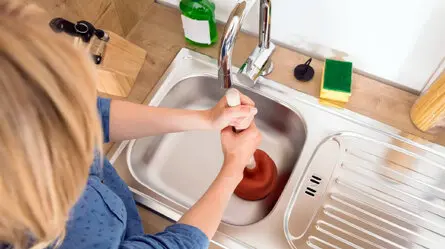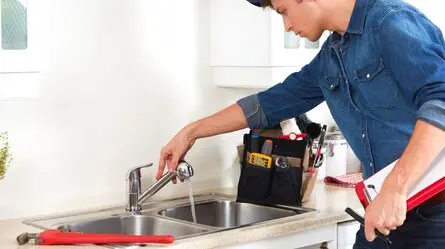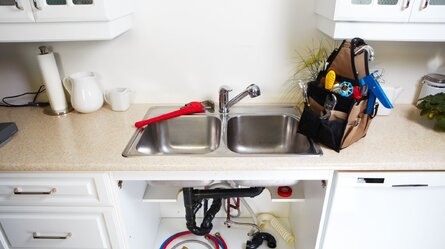Did you know over 35% of Australian homeowners have faced significant plumbing damage due to untreated sink blockages? It might seem like a minor inconvenience, but a blocked sink can quickly spiral into a severe problem. These blockages are often ignored and left to worsen until they cause expensive and disruptive damage. Minor issues such as a slow drain or occasional gurgling can be the early warning signs of much more significant complications on the horizon.
Neglecting these minor symptoms can lead to pipe corrosion, water damage, and costly repairs that disrupt daily life. This article will explain the hidden dangers of neglecting sink blockages and show why proactive attention to plumbing health is crucial. Let’s explore the serious, long-term consequences of overlooking this seemingly trivial problem.
Early Signs of Sink Blockages You Shouldn’t Ignore
Identifying drain issues early helps prevent major plumbing disasters and costly repairs. These warning signs indicate when your sink needs attention.
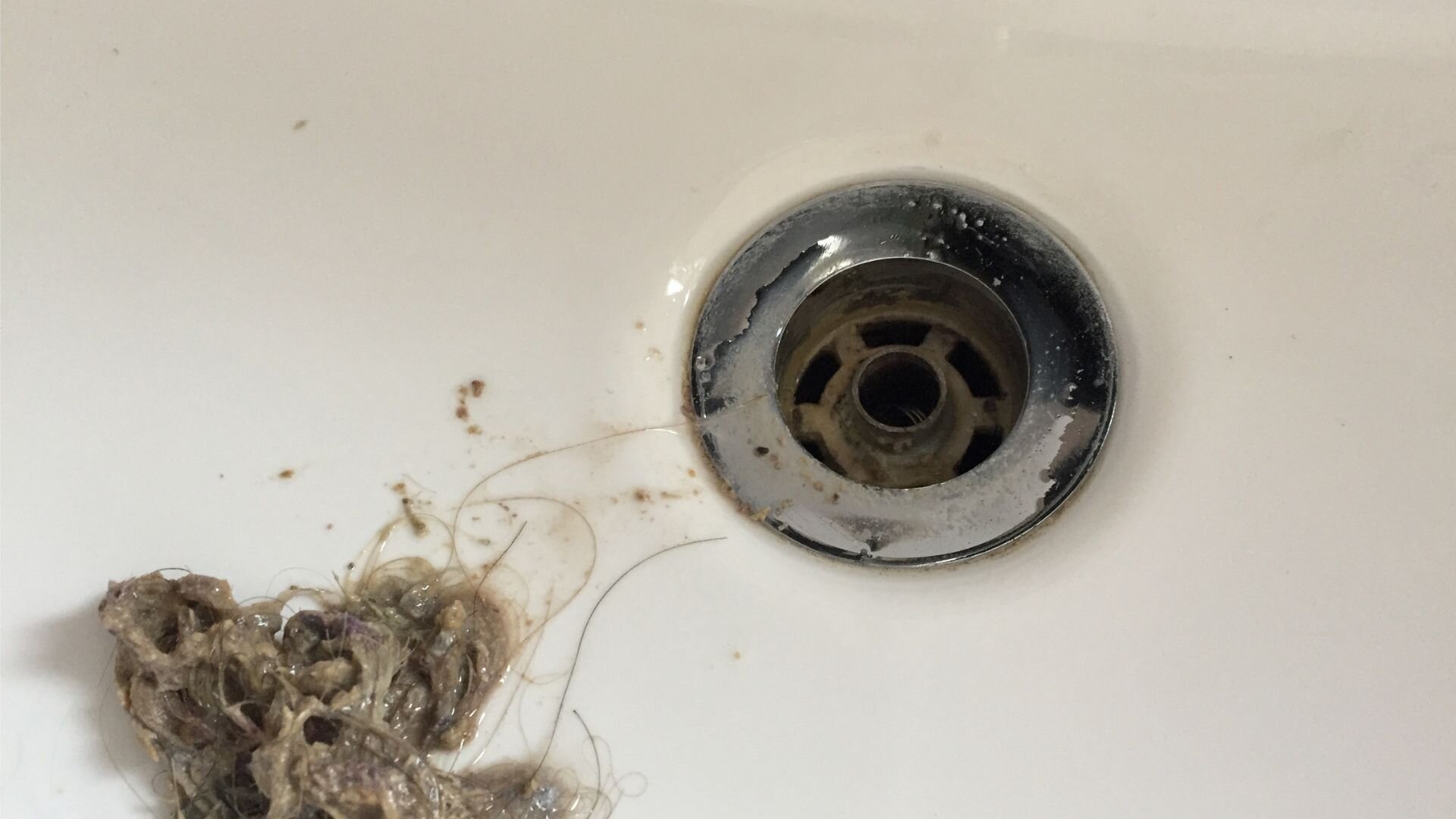
Slow Drainage
If you notice water pooling around the plughole during your daily tasks, it’s a sign that blockages might be forming in your pipes. Debris, grease, and hair can gradually build up, restricting water flow more and more over time. If ignored, these blockages can lead to complete clogs, so it’s crucial to address them early on.
Unpleasant Odours
Foul smells wafting from your drain suggest decomposing organic matter trapped within the plumbing system. Food scraps, soap scum, and grease create perfect conditions for bacteria growth, resulting in those distinctive drain odours. These trapped materials often become anchor points for future blockages.
Gurgling Sounds
Strange noises from your drain indicate trapped air bubbles trying to escape through standing water. This gurgling occurs when partial blockages create air pockets in the pipe system. The sounds often intensify as the obstruction grows, restricting proper water flow.
Recurring Clogs
If you’re dealing with frequent blockages, it could indicate deeper issues in your plumbing. Occasional clogs are normal, but if they keep happening, it might mean there’s pipe damage, improper installation, or a systemic build-up that needs professional help. Regular blockages put extra strain on your entire plumbing system.
Common Causes of Sink Blockages
Knowing the main culprits behind sink blockages can help you avoid these common household problems. Let’s delve into the primary causes that lead to clogged drains.
Food Residue
Kitchen scraps were washed down the sink and accumulated inside pipes over time. Small particles stick to pipe walls, creating a foundation for larger blockages. Rice, pasta, and fibrous vegetables expand when wet, making them particularly problematic for drain systems.
Grease Build-Up
Cooking oils and fats poured down drains solidify as they cool, coating pipe interiors with sticky residue. This hardened layer catches passing debris, narrowing the pipe diameter.
Combining grease and other waste materials forms stubborn clogs that resist standard cleaning methods.
Foreign Objects
Small items accidentally dropped into sinks create immediate flow restrictions. Jewellery, bottle caps, and children’s toys lodge in pipe bends or drain traps, becoming collection points for debris and leading to complete blockages throughout the system.
Soap and Hair Residues
Bathroom sinks suffer from soap scum accumulation mixed with loose hair strands. The sticky combination adheres to pipe surfaces, trapping additional debris. Chemical reactions between hard water and soap products accelerate this build-up process.
Immediate Problems Caused by Neglected Sink Blockages
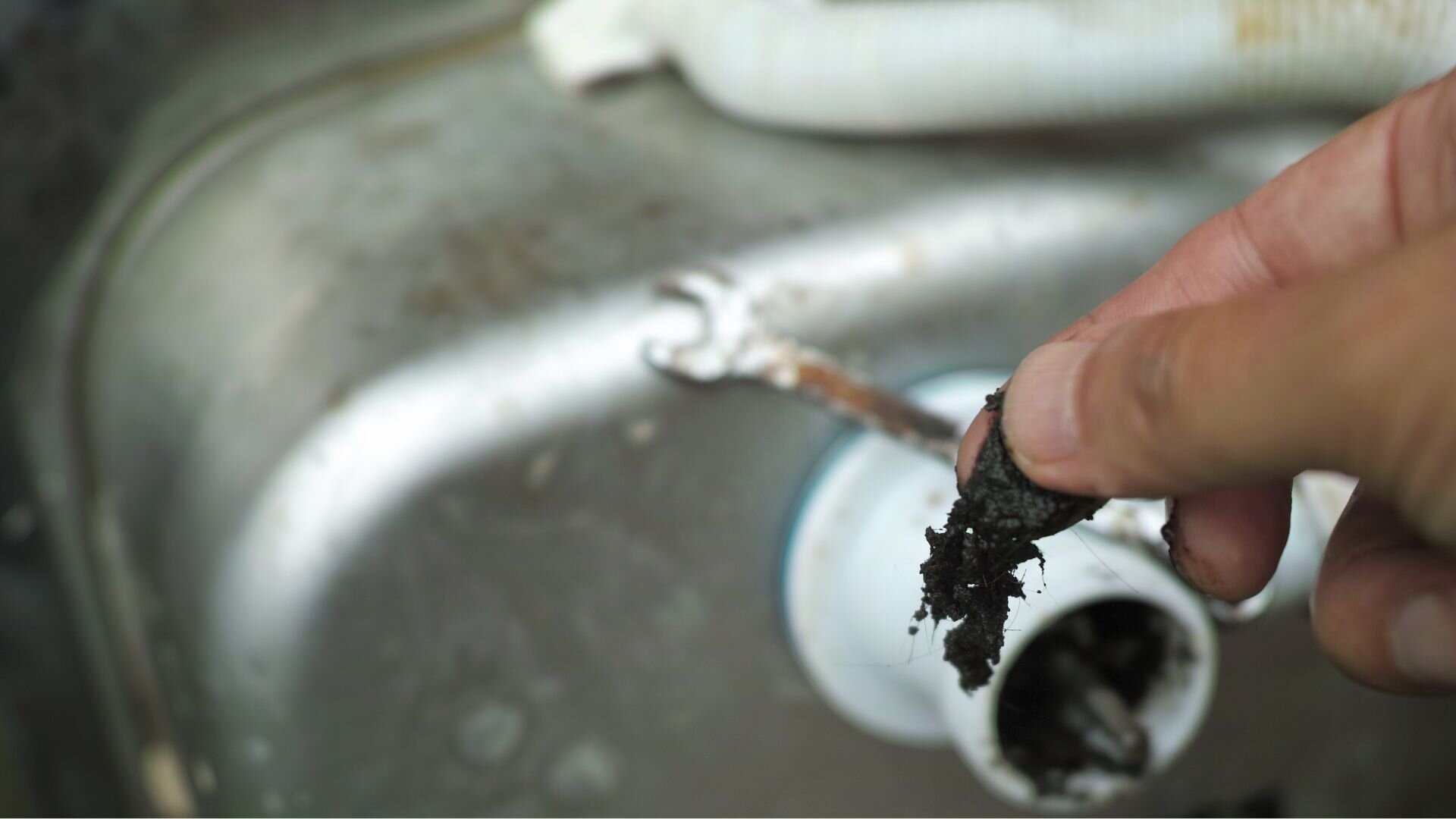
Blocked sinks create immediate challenges that affect daily life and household maintenance. Here are the pressing issues that emerge when drain problems still need to be addressed.
Backup in sinks causes stagnant water to pool, creating an ideal breeding ground for harmful bacteria. This contaminated water poses health risks through direct contact or splashing, complicating kitchen activities like cleaning and food preparation. In the bathroom, it disrupts routines and adds frustration as dirty water lingers.
Foul odours from blocked drains can waft throughout your home, affecting air quality and comfort. These unpleasant smells can stick to fabrics, lingering even after you clear the blockage. This stench often suggests health hazards, as it’s usually caused by sewage gases and decomposing waste trapped in the system.
Clogged drains put excessive pressure on pipes, forcing water against the pipe walls and straining joints and connections in the plumbing system. Over time, this added pressure weakens the pipes, potentially leading to cracks, splits, or even bursts, resulting in extensive damage and costly repairs.
Long-Term Consequences of Neglected Sink Blockages
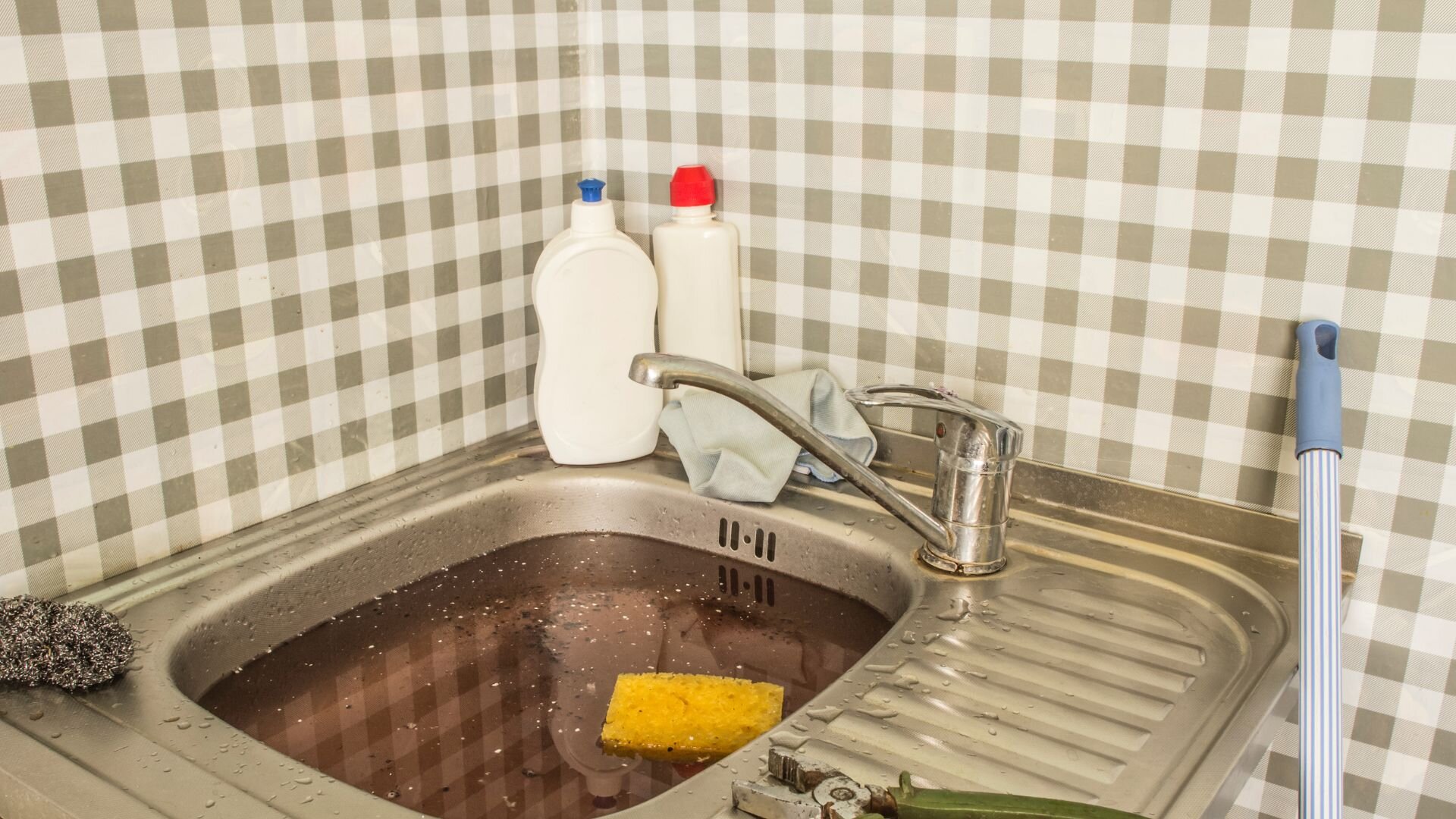
Leaving sink blockages unresolved can lead to serious, long-term damage, affecting both property and health. The cost of repairs can rise dramatically if these issues go untreated.
Pipe corrosion is a primary risk. Trapped waste releases corrosive chemicals that erode pipe surfaces, and different materials reacting together can worsen this effect. Over time, pipes can develop leaks, cracks, and other internal damage that weakens the entire plumbing system.
Water damage is another concern, as overflow from blocked sinks can reach cabinets, warp wood, and stain nearby walls. Moisture often seeps into hidden areas, compromising floor joists, ceilings, and even electrical systems under sinks.
Blocked sinks also create ideal conditions for mould and bacterial growth. Dark, damp spaces allow colonies to thrive behind walls, releasing spores that can trigger allergies and respiratory issues. These areas often require professional treatment to restore safe living conditions fully.
Repair costs can escalate when minor blockages are ignored. Simple cleaning jobs may turn into full pipe replacement projects. Emergency fixes are significantly more costly than regular maintenance, which can strain household budgets.
Health Risks Linked to Blocked Sinks
Blocked sinks present significant health risks beyond simple inconvenience, affecting everyone in the home, especially the most vulnerable.
Moisture from blocked sinks can lead to the growth of toxic mould colonies behind walls and under cabinets. This mould releases spores that might trigger asthma attacks and allergic reactions. People could experience persistent coughing, wheezing, and nasal congestion. Over time, exposure not only worsens existing respiratory issues but may also create new sensitivities.
Blocked sinks also become breeding grounds for bacteria, as stagnant water provides ideal conditions for harmful microorganisms to multiply. These bacteria release compounds that lower indoor air quality and contaminate nearby surfaces. Microscopic pathogens can spread through water droplets or air, leading to stomach upsets, skin infections, and other health concerns.
Kitchen sinks, in particular, pose a high risk, as these harmful organisms accumulate close to food preparation areas.
Blocked drains also attract pests due to the decomposing organic matter within. Cockroaches, drawn to damp conditions, can carry diseases as they travel through pipes. Rodents may follow food scents into blocked areas, building nests within wall cavities. These pests introduce further health risks through their droppings and contaminated fur, compounding the hazards posed by blocked sinks.
Financial Impact of Delayed Plumbing Maintenance
Postponing plumbing maintenance creates significant financial burdens that extend beyond immediate repair costs. Understanding these impacts helps homeowners make informed decisions about timely interventions.
- Escalating Repair Costs: Minor blockages requiring simple plunging to grow into significant excavation projects. Emergency callout fees for severe clog calls triple the standard maintenance rates. Complete pipe replacement becomes necessary when corrosion spreads through neglected systems. Water damage restoration involves multiple contractors, including plumbers, builders, and specialist cleaners.
- Decreased Property Value: Structural damage from ongoing plumbing issues significantly reduces market appeal. Home inspections reveal water-related problems, leading potential buyers to negotiate lower prices. Visible mould stains and persistent odours create negative impressions during property viewings. The remediation cost often exceeds the original maintenance expenses that could have prevented these issues.
- Insurance Complications: Insurance providers classify neglected maintenance as owner negligence, often rejecting related claims. Policy fine print excludes coverage for gradual damage from blocked drains. Homeowners face full financial responsibility for repairs, restoration, and temporary accommodation costs. Future insurance premiums increase after making claims for preventable plumbing disasters.
Preventative Measures: How to Keep Sink Blockages at Bay
Taking proactive steps to maintain clear drains saves time, money, and stress. These simple habits protect your plumbing system from common blockages.
- Regular Cleaning: Weekly maintenance with hot water flushes helps dissolve accumulated residues. A mixture of bicarbonate soda and vinegar keeps drains fresh and flowing. Regular pipe brushing removes build-up before it hardens. Running cold water during and after garbage disposal use prevents waste accumulation.
- Use of Sink Strainers: Quality mesh strainers effectively catch food particles, hair, and other debris. Different strainer types suit various sink uses—fine mesh for bathroom basins and larger holes for kitchen sinks. Regular filter cleaning prevents overflow issues. Replacing damaged strainers immediately maintains protection against blockages.
- Dispose of Grease Properly: Cooling cooking oils before disposal in sealed containers protects pipes. Wiping greasy pans with paper towels removes excess fat before washing. Storing used oil for council collection prevents pipe contamination. Using grease traps in commercial kitchens reduces system strain.
- Routine Professional Inspection: Annual plumbing checks identify potential issues early. Camera inspections reveal hidden pipe damage or developing blockages. Professional cleaning services effectively remove deep-seated build-up. Scheduled maintenance prevents emergency callouts and extends system callouts.
When to Call a Plumber
Recognising when professional intervention becomes necessary saves time and prevents further damage to your plumbing system.
- Recurring Issues: Multiple blockages within short periods signal deeper plumbing problems. Frequent clogs in multiple sinks indicate system-wide issues requiring expert diagnosis. Professional plumbers possess specialised tools to address persistent blockages effectively. Their expertise helps identify underlying causes rather than treating symptoms.
- No Improvement Despite Efforts: Failed attempts with plungers, chemical cleaners, and drain snakes warrant professional attention. Stubborn blockages beyond the reach of household tools need industrial equipment. Strange noises or odours persisting after DIY solutions indicate complex problems. Professional plumbers assess the entire system to locate hidden issues.
- Visible Pipe Leaks: Water stains under sink cabinets signal compromised pipe joints or connections. Dripping or dampness around fixture bases requires immediate professional inspection. Corroded pipes are showing signs of damage and need expert replacement. Emergency plumbing services prevent extensive water damage to surrounding structures.
Keep Your Pipes Clear, Your Home Safe
Intelligent homeowners recognise that sink maintenance safeguards their property investment and family well-being. Addressing minor issues today prevents major disasters tomorrow.
Woolf Plumbing brings three decades of expertise to every blocked drain challenge. Our licensed professionals use advanced diagnostic equipment to identify blockage sources accurately. The team arrives promptly, equipped with industrial-grade tools to resolve issues efficiently.
We specialise in both emergency responses and preventative maintenance programs. Our comprehensive service includes detailed inspections, professional cleaning, and expert repairs. Each solution comes with clear explanations and maintenance advice to prevent future problems.
Local families trust Woolf Plumbing for reliable, honest service across Melbourne. We understand that blocked sinks create stress and disruption to daily life. Our experienced technicians work efficiently to restore proper drainage while protecting your plumbing infrastructure.
Contact Woolf Plumbing today for professional drain-clearing services or to schedule a maintenance inspection. Our friendly team stands ready to help preserve your home’s plumbing health. Call us to book your service appointment.


